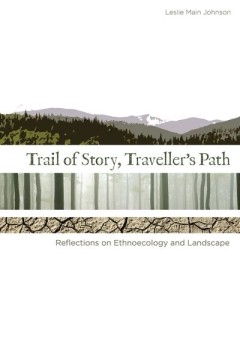Filter by

We Are Coming Home Repatriation and the Restoration of Blackfoot Cultural Co…
In 1990, Gerald Conaty was hired as senior curator of ethnology at the Glenbow Museum, with the particular mandate of improving the museum’s relationship with Aboriginal communities. That same year, the Glenbow had taken its first tentative steps toward repatriation by returning sacred objects to First Nations’ peoples. These efforts drew harsh criticism from members of the provincial gover…
- Edition
- -
- ISBN/ISSN
- 9781771990172.01
- Collation
- -
- Series Title
- -
- Call Number
- 304 pages

Political Activist Ethnography Studies in the Social Relations of Struggle
Featuring research from Aotearoa (New Zealand), Bangladesh, Canada, Poland, South Africa, and the United States on matters as diverse as anti-poverty organizing, prisoners’ re-entry, anti-fracking campaigns, left-inspired think-tank development, non-governmental partnerships, involuntary psychiatric admission, and perils of immigration medical examination, contributors to this volume adopt a …
- Edition
- -
- ISBN/ISSN
- 9781771993999
- Collation
- -
- Series Title
- -
- Call Number
- 6 x 9, 304 pages

Imagining Head-Smashed-In Aboriginal Buffalo Hunting on the Northern Plains
At the place known as Head-Smashed-In in southwestern Alberta, Aboriginal people practiced a form of group hunting for nearly 6,000 years before European contact. The large communal bison traps of the Plains were the single greatest food-getting method ever developed in human history. Hunters, working with their knowledge of the land and of buffalo behaviour, drove their quarry over a cliff and…
- Edition
- -
- ISBN/ISSN
- 9781897425046.01
- Collation
- -
- Series Title
- -
- Call Number
- 6.5 x 9.25, 361 pages

Whistled Languages A Worldwide Inquiry on Human Whistled Speech
The main focus of this monograph on whistled speech is the result of a worldwide inquiry primarily based on the author’s unprecedented fieldwork and laboratory experience. The different questions raised by the origin and the evolution of whistled forms of languages are also explored, including the role of environmental constraints in the emergence of whistled speech, their phonetic and phonol…
- Edition
- -
- ISBN/ISSN
- 978-3-662-45837-2
- Collation
- IX, 182
- Series Title
- -
- Call Number
- -

Field Archaeology from Around the World Ideas and Approaches
Field practice in archaeology varies greatly throughout the world, mainly because archaeological sites survive in very different ways in different counties. Many manuals see this as a problem - to be defeated by the imposition of standardised procedures. In this book we relish the variety of field practice, seeing it rather as the way the best archaeologists have responded creatively to the c…
- Edition
- -
- ISBN/ISSN
- 978-3-319-09819-7
- Collation
- XXXII, 245
- Series Title
- -
- Call Number
- -

An Anthropology of Learning: On Nested Frictions in Cultural Ecologies
This book has one explicit purpose: to present a new theory of cultural learning in organisations which combines practice-based learning with cultural models - a cognitive anthropological schema theory of taken-for-granted connections - tied to the everyday meaningful use of artefacts. The understanding of culture as emerging in a process of learning open up for new understandings, which is use…
- Edition
- Ed. 1
- ISBN/ISSN
- 978-94-017-9606-4
- Collation
- IX, 320
- Series Title
- -
- Call Number
- 301 HAS a

Trail of Story, Traveller’s Path Reflections on Ethnoecology and Landscape
With passion and conviction, Johnson maintains that our response to our environment shapes our culture, determines our lifestyle, defines our identity, and sets the tone for our relationships and economies. With photos, she documents the landscape and contrasts the ecological relationships with land of First Nations peoples to those of non-indigenous scientists. The result is an absorbing study…
- Edition
- -
- ISBN/ISSN
- 9781897425350.01
- Collation
- -
- Series Title
- -
- Call Number
- 267 pages

Alberta’s Lower Athabasca Basin Archaeology and Palaeoenvironments
Over the past two decades, the oil sands region of northeastern Alberta has been the site of unprecedented levels of development. Alberta’s Lower Athabasca Basin tells a fascinating story of how a catastrophic ice age flood left behind a unique landscape in the Lower Athabasca Basin, one that made deposits of bitumen available for surface mining. Less well known is the discovery that this flo…
- Edition
- -
- ISBN/ISSN
- 9781926836904.01
- Collation
- -
- Series Title
- Recovering the Past: Studies in Archaeology
- Call Number
- 7 x 10, 565 pages

Light from Ancient Campfires Archaeological Evidence for Native Lifeways on …
Light from Ancient Campfires is the first book in twenty years to gather together a comprehensive prehistoric archaeological record of the Northern Plains First Nations. In this important examination of the region’s earliest inhabitants, author Trevor Peck reviews the many changes of interpretation that have occurred in relevant literature published during the last two decades. Beginning with…
- Edition
- -
- ISBN/ISSN
- 9781897425961.01
- Collation
- -
- Series Title
- -
- Call Number
- 528 pages

Alberta’s Lower Athabasca Basin Archaeology and Palaeoenvironments
Over the past two decades, the oil sands region of northeastern Alberta has been the site of unprecedented levels of development. Alberta’s Lower Athabasca Basin tells a fascinating story of how a catastrophic ice age flood left behind a unique landscape in the Lower Athabasca Basin, one that made deposits of bitumen available for surface mining. Less well known is the discovery that this flo…
- Edition
- -
- ISBN/ISSN
- 9781926836904.01
- Collation
- -
- Series Title
- -
- Call Number
- 7 x 10, 565 pages
 Computer Science, Information & General Works
Computer Science, Information & General Works  Philosophy & Psychology
Philosophy & Psychology  Religion
Religion  Social Sciences
Social Sciences  Language
Language  Pure Science
Pure Science  Applied Sciences
Applied Sciences  Art & Recreation
Art & Recreation  Literature
Literature  History & Geography
History & Geography